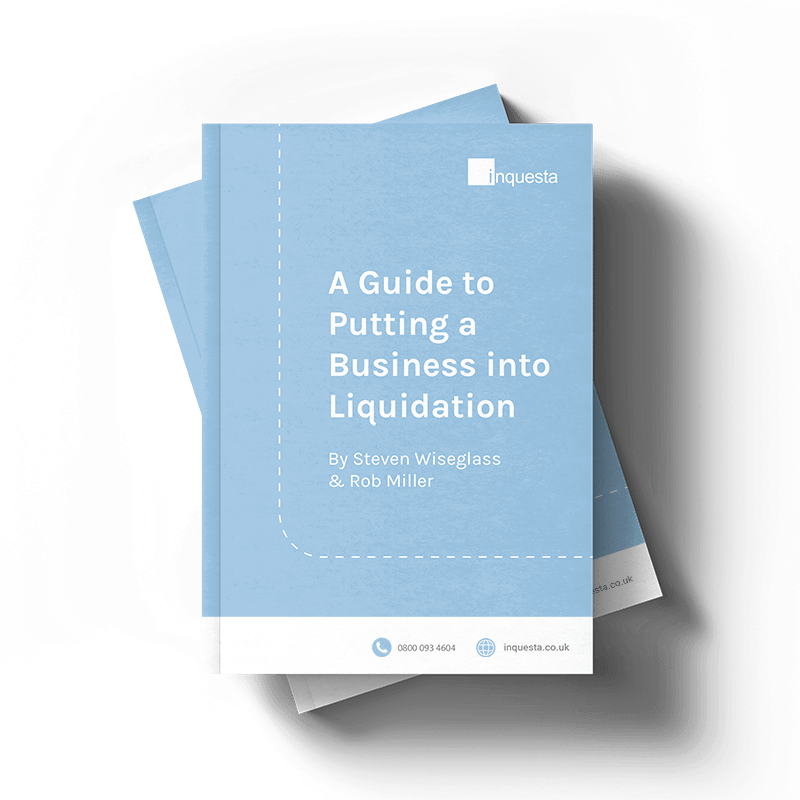What is a Winding Up Petition?
A winding-up petition is a serious legal step used by creditors to force a company into compulsory liquidation when it has been unable to pay back debts. Often seen as a last resort for creditors, a winding up petition is one of the most significant threats a business can face, as it can lead to the freezing of bank accounts, loss of control over the company, and ultimately, the closure of the business.
Once a winding-up petition has been issued, it becomes public record. This can have serious knock-on effects as it will often deter suppliers, possible investors, and even potential clients. If your business has received one, urgent action is essential in order to explore available options for preventing its escalation and protecting your company.
Threshold for a Winding Up Petition
In order for a creditor to file a valid winding-up petition, their circumstance must meet certain legal criteria:
- The debt must exceed £750.
- The debt must be undisputed, meaning the company has not formally challenged its validity.
- The creditor must have attempted to recover the debt through other means, such as via a statutory demand.
If these set conditions do not apply, you may have grounds to challenge, or even dismiss, the winding-up petition.
Received a Winding Up Petition? Here’s What to Do
Receiving a winding-up petition can feel overwhelming. Fortunately, there are some steps you can take to protect your business against the worst possible outcomes:
- Act Quickly: You only have seven days from receiving the petition before it will be advertised in The Gazette, which could severely harm your reputation and business relationships.
- Seek Professional Advice: Consult insolvency experts to explore your options. This will range from repayment plans to challenging the petition.
- Defend the Petition: If the debt can be considered ‘disputed’, or the petition was procedurally flawed, you may have a case to get your winding up petition dismissed. Speak to your insolvency expert for more information on next steps.
What is the Winding Up Petition Procedure in the UK?
The formal process of a winding-up petition follows these steps:
- Petition Files: The creditor files a petition with the court for their debtor to be wound up,
- Notice Sent: You will receive a copy of the petition.
- Hearing Scheduled: A court hearing is set to decide whether there are grounds to grant the winding-up order.
- Advertisement in The Gazette: If granted, the petition will be made public after seven days, unless you’ve taken action to stop it.
- Court Decision: If approved, a winding up order will be issued. This places your company into liquidation.
Gaining a clear understanding of this procedure can ensure you take the right steps at the right time.
Download our FREE Guide to Liquidation
If your business has received a winding-up petition, understanding the liquidation process is vital. If you aren’t able to get your winding up petition dismissed, or addressed in another way, it can easily lead to compulsory liquidation if not addressed quickly, making it essential to explore your options and take well-informed action.
Our FREE Liquidation guide provides clear, expert advice on:
- Key warning signs that your business may be in danger of possible liquidation.
- Which insolvency options are available and which ones best suit your situation.
- What the liquidation process looks like
- Things you should be aware of throughout the process.
- What life after liquidation looks like.
If you’re considering liquidation or seeking more information, download our comprehensive Liquidation Guide and explore everything you will need to know.

How to Stop or Defend a Winding Up Petition in the UK
Being served with a winding-up petition is a serious issue that requires immediate action. Without proper intervention, it could result in the compulsory liquidation of your business. However, there are several strategies available to stop the process, ranging from upfront payment, disputing the debt, or restructuring your business.
Every situation is unique, and the right approach depends on your financial position, the nature of your debt, and your relationship with creditors. Here are some of the most effective options for stopping a winding-up petition:
Why Seek Professional Help With a Winding Up Petition?
Getting your winding up petition dismissed, or handling it another way, on your own can be highly complex and stressful. A professional insolvency expert will:
- Assess your financial situation and explore your rescue options
- Negotiate with creditors in order to resolve disputes
- Represent you in court in order to find a positive resolution
Inquesta offers tailored advice to businesses across the UK, ensuring they’re fully equipped to manage such a critical challenge. We’ve helped countless business directors, helping them to navigate winding-up petitions, offering solutions tailored to their exact needs.
From disputing claims to negotiating with creditors, and ultimately getting the winding up petition dismissed, we’re here to help protect your business.
Get In Touch
Meet the Director
We’ve assembled an expert team that has decades of experience with supporting company directors getting a winding up petition dismissed.

Steven Wiseglass
Director of Insolvency
A co-founder of Inquesta, Steven is a licensed Insolvency Practitioner with over a decade of experience in the field. He is a member of the Insolvency Practitioners Association, Association of Business Recovery Professionals (R3), and his insolvency licence is issued by the Insolvency Practitioners Association. In addition, he sits on the R3 committee of the North West Regional Committee.
Steven specialises in advising directors of small to medium-sized businesses, and has a wealth of expertise in providing the most appropriate advice whatever the firm’s circumstances may be. He has also been instrumental in helping company directors save their business and rebuild them into successful enterprises.




